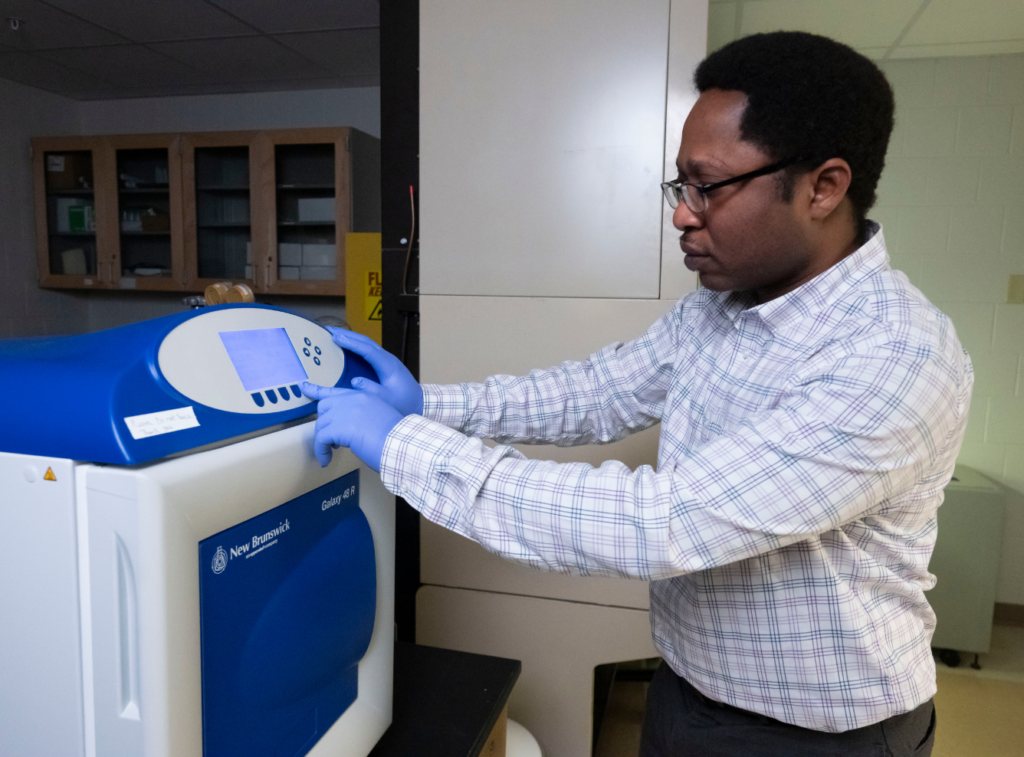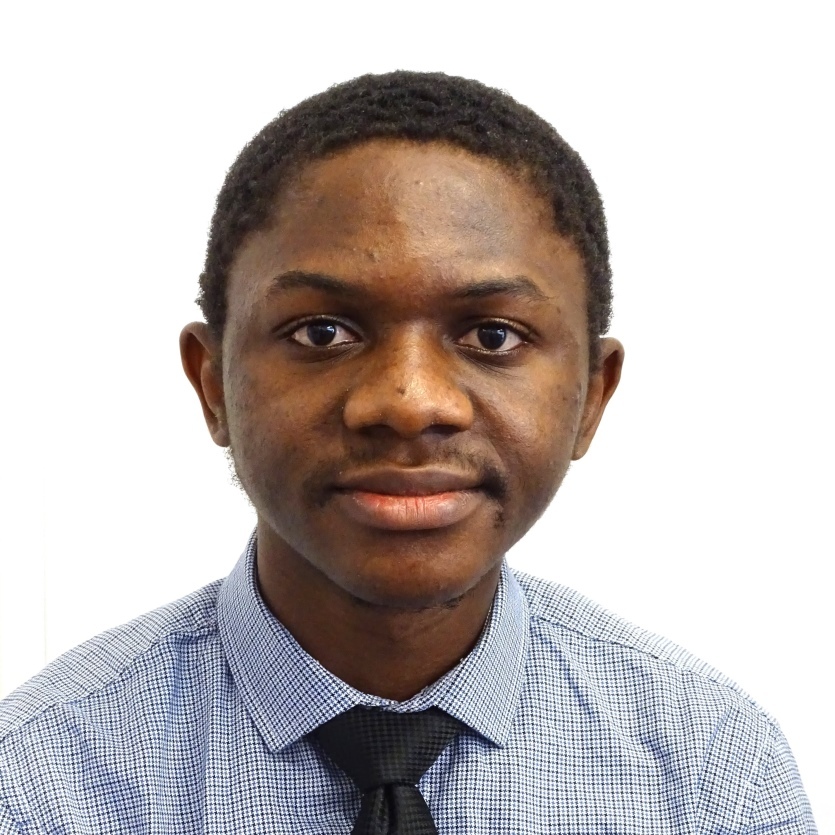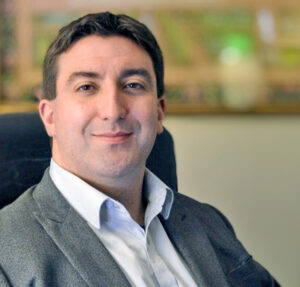Dr. Lanre Morenikeji received his PhD in animal genetics at the Federal University of Technology in Akure, Nigeria. With a strong interest in genetics and immunology, he pursued a pre-doctoral program at Cornell University and a postdoctoral fellowship at the Rochester Institute of Technology. As an assistant professor at the University of Pittsburgh, he focuses his research on understanding the mechanisms that regulate immune response during infectious diseases. He’s been working on noncoding RNAs associated with disease susceptibility and tolerance. In addition to research, he is passionate about teaching science to his students.
How did your academic background prepare you for your present position?
I had a background in genetics, where I started as an animal science student. I liked the health aspect of my course because I did stuff like immunology, parasitology, and genetics, which sparked my interest in molecular genetics. During my Master’s, I signed up for some courses in immunology due to my interest in health, even though they were not required for my graduation, and I did quite well in them. My interest in integrating genetics and immunology informed my decision to do a postdoc in immunology. Because of my love of biomedical science, combining my genetics and immunology background positioned me well for what I’m doing now.
What barriers did you have to overcome, having envisioned your future career in biomedical science?
I’m originally from Nigeria, where we have minimal resources to conduct research. Although we can access the theoretical aspects through reading textbooks and taking courses, doing hands-on work is limited. I started looking for opportunities to further my studies abroad early on. During my Master’s, I did molecular characterization of some proteins associated with feed efficiency and some growth parameters in pigs. Performing protein analysis, gel electrophoresis, and PCR were difficult, but I leveraged a professor who studied in India and brought some equipment to his lab. Most of my professors considered my PhD research proposal ambitious except one (who had gone abroad and done some work in genetics). The latter said, “Let’s give him the opportunity. He said he wanted to do it, let him do it. We’ll be here.” He encouraged me, and I brought him on as my co-advisor for my PhD to benefit from his mentorship and experience. Funding is a major problem when conducting research in Nigeria, so I started looking for scholarships. I received many rejections and once received an admission offer with a partial scholarship to a university in the U.S., but I couldn’t attend because there was no further funding support. So, I kept on doing my research and didn’t limit myself due to limited resources. Because of my interest in doing my PhD in the U.S., when I got the opportunity, I moved to Cornell University in Ithaca, NY, to do the most important part of my PhD research and returned to Nigeria to graduate with a PhD.
Also, the language or accent barrier was a challenge when I came to the U.S. We speak English in Nigeria, but it’s different from how it’s spoken in the United States. Sometimes, it isn’t easy to communicate with colleagues, and I have to repeat things multiple times to aid comprehension. So, it’s something that I had to overcome over time by watching videos, listening a lot, listening to the news, and practicing my communication. Likewise, I think the pace of work is another challenge. The pace is a bit faster. The volume is much higher than what I had in Nigeria. And, of course, the resources are available, so I just plug into it and then keep moving.
How did your pre-doctoral program experience spur your interest in a postdoc in the U.S.?
When I came to the U.S. for my pre-doc, the first time I resumed my lab, I looked at everything and said a statement to myself because I like to speak to myself a lot. I said, “Lanre, you have everything now. Become whatever you want to become.” I needed to learn a lot and work independently when I got here. As soon as I resumed in the lab, they gave me my bench, and I met with my advisor on Fridays to give reports of what I’d done and discuss progress. We also had lab meetings, but everybody in the lab focused on their research, so I had to work independently on my research. This attribute helped me and positioned me well for my postdoc because I learned a lot of techniques. During that time, I attended meetings, met many other scientists, and made friends, including my postdoc advisor, whom I met while I was at Cornell University. Most of my collaborators today were people I knew at Cornell. In fact, a professor called me after a presentation and commended me on my presentation. Since then, we’ve been friends and collaborators and won some grants together. So, that experience helped me to transition into my postdoc research, especially doing my pre-doctoral fellowship at a prestigious institution like Cornell University, which also influenced my postdoc offers. When I came for a postdoc, I had three different offers, two in the United States and one in India, and I chose one in the U.S.

How do you navigate research expectations as a scientist from a minority group while training your students?
As I love research and discovering new things, I exert myself a lot beyond an average person. If you want to be outstanding, nothing comes cheaply, and you need to exert yourself to do more than an average person will do. As a minority scientist, you compete with people around you and have to extend yourself to do more, to get a lot done. Sometimes, I had to stay in the lab until night. It requires a lot for you to be able to do many research projects and publish multiple papers. Currently, I have four students doing research with me and I also collaborate with other professors in my school and other universities. So, collaboration also helped me to be able to get more research output. Also, I read a lot to understand current research trends, identify gaps, and then try to create something novel to fill the gaps. As research results come out, I take students to conferences to present and prepare papers for publication afterward. I believe there is time for everything, so I maintain a work-life balance. I have time to spend with my family, visiting places and spending time playing with my kids. I just have a principle to focus on whatever I need to do and attend to other things later.
Part of the reward is recognition of my work, like the Excellence in Research and Teaching Award I received in the overall Pitts system, which is great and highly competitive. Also, my campus shares news and publishes my successes with my students.
As a professor, how do you mentor students, and what is your mentorship philosophy? How do you measure mentorship success?
First, mentoring is work, as it requires time, patience, and applying different methods and pedagogy to train students. My goal is to be able to communicate science to my students and give them a platform to become what they want to be. So, it’s always exciting for me when my students can take the techniques, the spirit of excellence, and commitment and it reflects in their work. That will position them well for whatever they want to do, either going to medical school or graduate school. Also, honesty is the first thing I require of students who come to my lab. This is because honesty is required to be a scientist. Therefore, they don’t need to manipulate or make things up but report whatever results they get from an experiment. I also teach them to work hard and not be afraid of making mistakes. Because they are undergraduate students, I train them through examples and demonstrations and allow them to try it out even when their hands are shaky. My goal is to transform them from being dependent to independent. After they are gone, many of them send thank you emails for the training, and I write them strong references when needed.
One of the ways I measure my success is to see my students being successful by fulfilling their goals in life and being where they desire to be. This brings me joy. Sometime last year, I visited a lab at West Virginia University, where I met a former student from Nigeria who is now a postdoc in that lab. Seeing my students succeed brings me joy, which is how I measure mentorship success.
Any final words for Black students and early career scientists?
To Black students and early career scientists: Be strong, courageous, and believe in yourself. You have the best in you; therefore, be confident in expressing that and reaching your greatest potential by acting it out. Disprove any labels or stereotypes by doing your best to shine. Also, mentorship is very important. Seek opportunities to connect with mentors and climb on their shoulders to reach your goals. Lastly, explore opportunities directed toward minorities and take advantage of them.
About the Author:

Blessing Olabosoye is a member of the Early Career Scientist Career Development Committee and a Graduate Student and Graduate Assistant at Iowa State University.
Learn more about the GSA’s Early Career Scientist Leadership Program.



